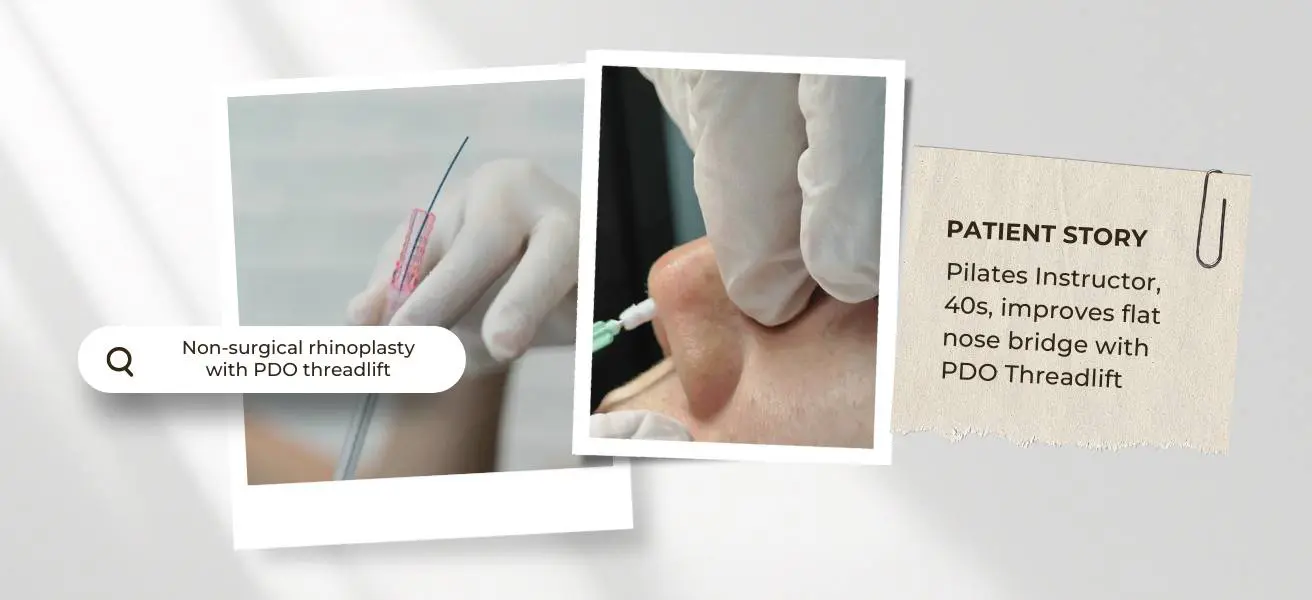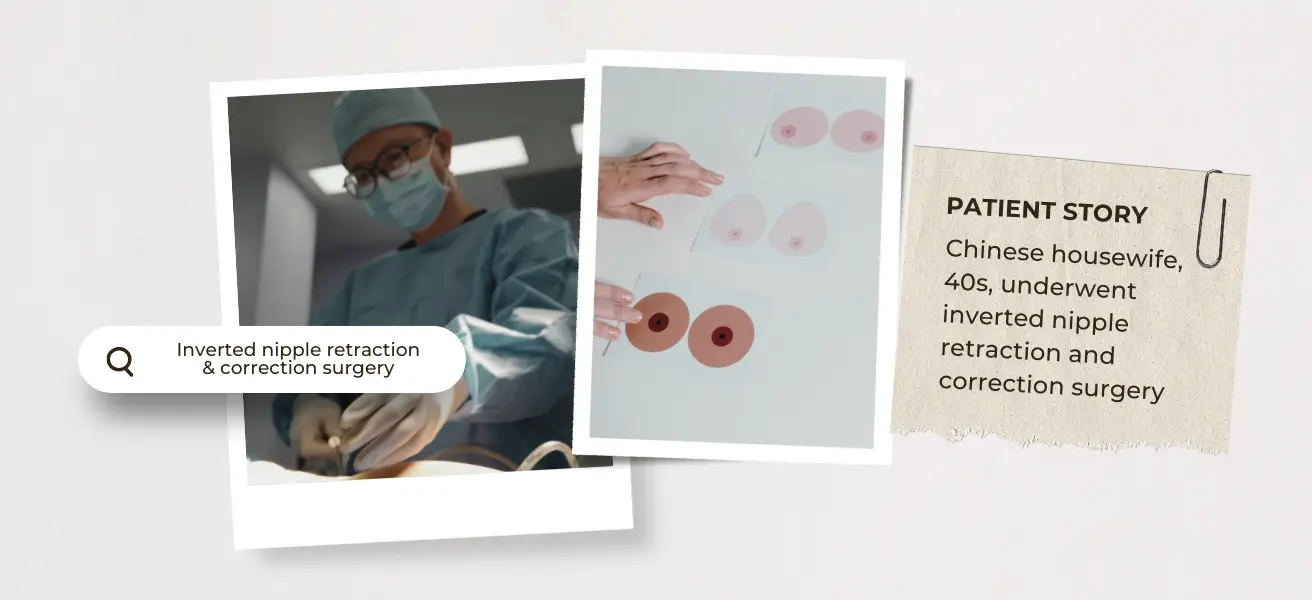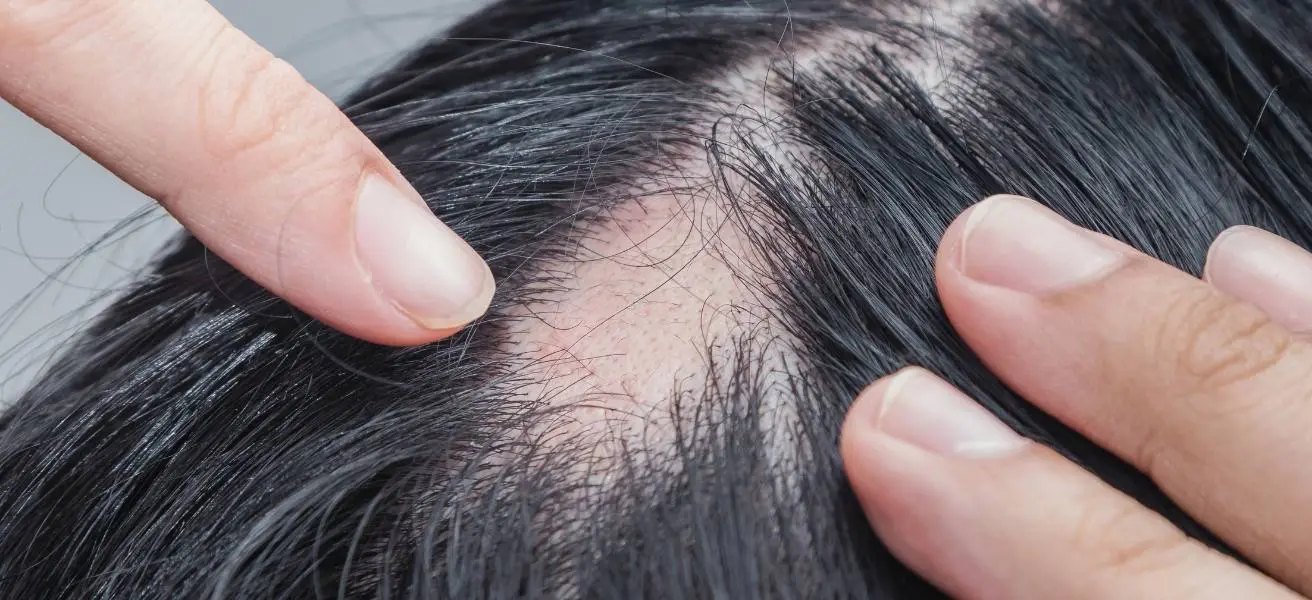"Abs are made in the kitchen." Weight loss, just like abs, also starts in the kitchen. Here are some healthy dietary habits to consider.
Table of Contents
Lasers for skin treatments have been popular for many individuals seeking to address their skin issues and improve their skin condition.
The constant advancement in technology has presented even more choices regarding such treatments. Pico Fractional Laser has been of kindling interest and recognised for its efficacy and impressive results.
Understand the difference between Pico Fractional Laser & Other Skin Lasers in Singapore before you make your next skin laser appointment.
What is a Pico Fractional Laser?
A Pico Fractional Laser is a picosecond laser where a picosecond is an SI unit measurement of time, and one picosecond is one trillionth of a second. This rapid pulse duration allows multiple laser shots to target specific areas of the skin effectively, thereby maximising treatment efficacy.
The Pico Fractional Laser technology breaks down pigment and stimulates collagen production, a versatile and dynamic skin laser for skin rejuvenation, tightening, and overall improvement in skin texture. It can also treat acne scars, marks, and hyperpigmentation.
Difference Between Pico Fractional Laser & Fraxel Fractional CO2 Laser Resurfacing
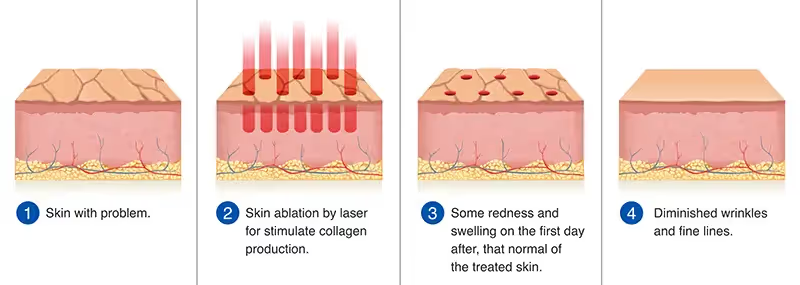
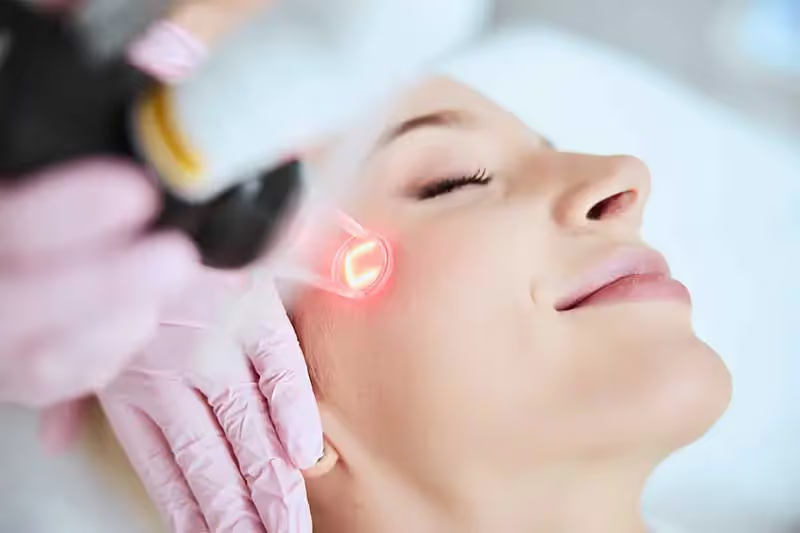

Fraxel is the brand name for Fractional Co2 Laser Resurfacing Laser co, commonly known as Fraxel Skin Resurfacing Laser. Fractional CO2 Laser Resurfacing uses fractional technology to remove layers of skin while preserving surrounding tissue. The downtime for Fraxel Skin Resurfacing Laser is typically longer than Pico Fractional Laser.
In contrast, Pico Fractional Laser technology is more efficient in treating indented scars and enlarged pores. Patients experience significantly fewer post-treatment side effects, which means faster recovery.
Difference Between Pico Fractional Laser & Other Picosecond Laser
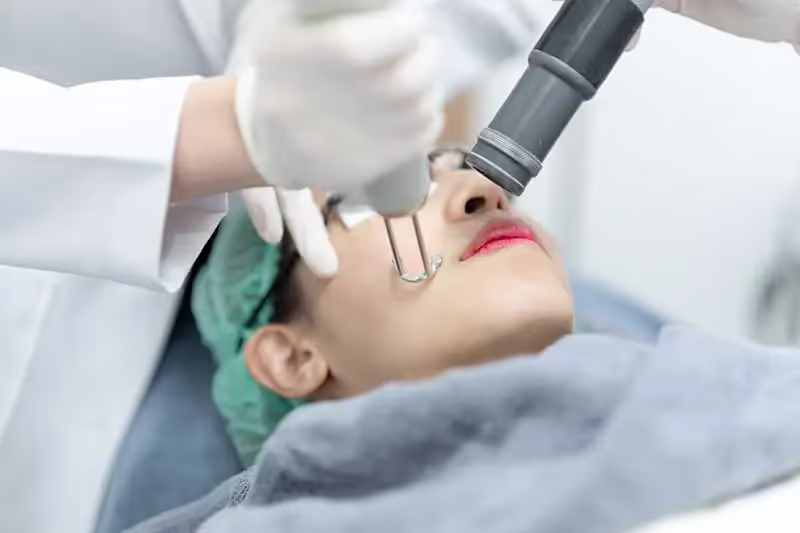
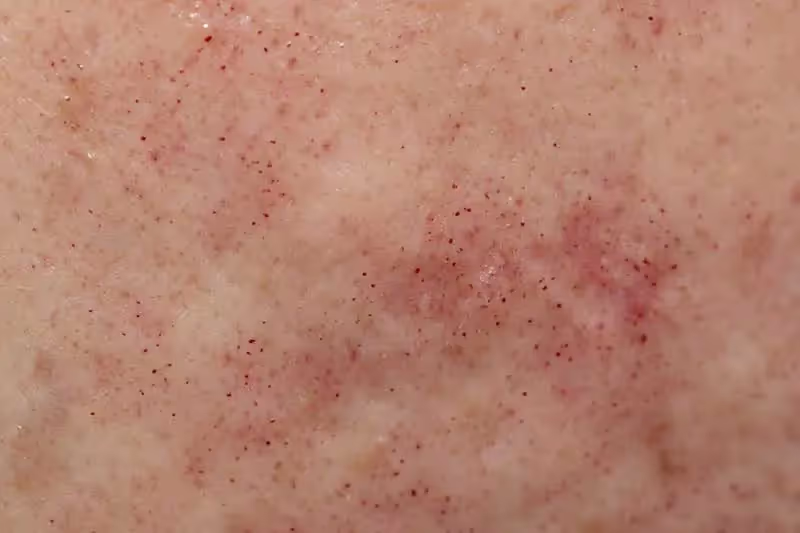
Pico Fractional Laser and other Picosecond Laser treatments use the principle of focused beams of pulsating light to treat skin. However, Pico Fractional Laser delivers energy in shorter bursts which, among other advantages, can remodel skin and improve its texture.
The accompanying fractional handpiece, known as the HEXA MLA (Microlens Array), features a versatile range of spot sizes, allowing for more precise treatments. Its laser energy penetrates better into the skin, treating targeted areas without causing damage to the skin surface, resulting in lesser downtime.
Difference Between Pico Fractional Laser & Traditional Q-switched laser treatment Lasers
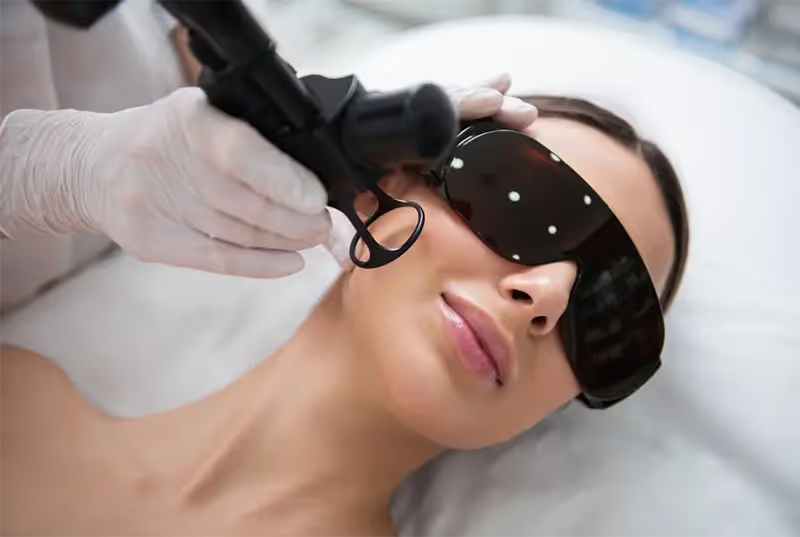
Pico Fractional Laser and Q-Switch lasers utilise focused pulsating light beams to treat various skin concerns.
The pivotal difference lies in the pulse duration; Pico Fractional Lasers emit energy in significantly shorter bursts than Q-Switch lasers. Shorter bursts mean it can deliver energy rapidly, enabling picosecond lasers to remodel the skin more effectively and improve texture without damaging the surface, resulting in minimal patient downtime.
Difference Between Pico Fractional Laser and Q-switched (nanosecond) Laser
The primary difference between the Pico Fractional Laser and a Q-switch (nanosecond) Laser is in the pulse duration.
Picosecond laser pulse duration is about 100 times shorter than a nanosecond laser. This capability enables Pico Fractional Lasers to do their job more efficiently. They are technologically more advanced than Q-switched or nanosecond lasers, thus reducing the side effects in patients, speeding up recovery and enhancing the laser treatments' efficacy.
Main Differences between Pico Fractional Laser vs Other Skin Lasers in Singapore
The distinction of Pico Fractional Lasers amongst other skin lasers in Singapore is its ultra-short pulse durations. Before the development of picosecond lasers, Q-Switch or nanosecond lasers were the popular options for skin treatments.
Safety, lesser risks, suitable for all skin tones
Being non-invasive, Pico Fractional Laser is safe as it minimises skin damage significantly, while traditional lasers do, to an extent, affect surrounding tissues during treatment. As a result, there are fewer complications in terms of burning, scarring and pigment-related issues.
Other skin lasers in Singapore can be ineffective for specific skin tones, unlike Pico Fractional Laser, which is suitable for all skin tones and complexions.
Shorter recovery period, fewer sessions, maximum efficacy
Most patients who underwent Pico Fractional Laser experienced a shorter recovery period, needed fewer sessions to see the results, and in some cases, no downtime was required. The laser's ability to disintegrate pigmentation into smaller fragments enhances treatment effectiveness and minimises discomfort compared to other skin lasers in Singapore.
Pico Laser can achieve what traditional lasers can do, but the difference is it does them better.
FAQ on Pico Fractional Laser vs Other Skin Lasers in Singapore
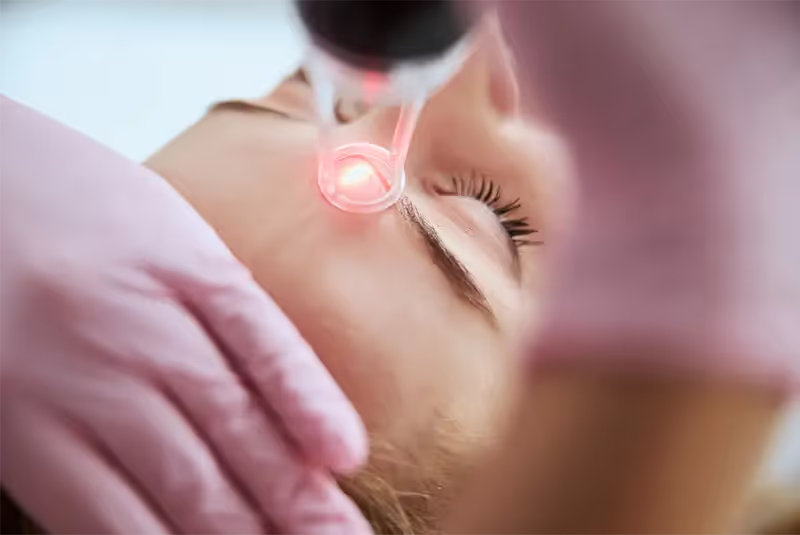
What are the advantages of Pico Fractional Laser?
There are many advantages to Pico Fractional Laser, such as:
- Shorter treatment
- Faster recovery time
- Increased patient safety
- Better precision that minimises surrounding skin damage
- Painless and comfortable
- Delivers energy in shorter bursts
- Fewer risks and complications post-session
- Optimal results with high patient satisfaction
- Technologically more advanced than other skin lasers in Singapore
Are the results of Pico Fractional Laser permanent?
Pico Fractional Laser improves skin's appearance significantly for most skin types. Its enhanced capabilities also mean shorter treatment and recovery time. However, as with most (if not all) procedures, the long-term result also depends on your lifestyle and habits. Do have a realistic goal in mind and discuss any concerns with our doctor.
Will PICO Fractional Laser Treatment burn my skin?
Pico Fractional Laser is one of the safest skin laser treatments on the market. It has a much lower risk of burns, skin trauma or skin injuries.





















